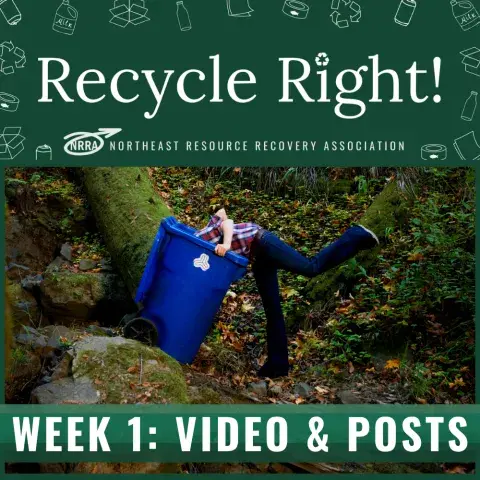
On April 18th -- in honor of Earth Day and Week -- NRRA kicked off week one of the 16-week Recycle Right Campaign! As part of the campaign, we also hosted our first Ask Me Anything: Recycling Edition event online. There were dozens of great audience-submitted questions that our panel of recycling experts answered over the course of an hour. Watch and share the full Recycling AMA event video, including subtitles.
The Recycle Right Campaign has been created and designed to be shared -- in emails, on websites, and across social media. The social posts you see below were posted on Facebook and Instagram over the course of the previous week. You can share them directly on social media, or download the images and text to use in your own Recycle Right Campaign. You can also sign up for the bi-weekly Recycle Right Campaign Newsletter, which is a compilation of 2 weeks-worth of posts and videos over the course of the full campaign, with 10 emails in total.
How to use the following image posts in 3 easy steps:
1. Drag the image onto your desktop or right-click and save it.
2. Upload the image to your email, website, or Instagram OR click the "SHARE" button to share the whole post on Facebook!
3. Copy and paste the text found below each image onto your post.
Bonus: Each post includes ready-made hashtags to be used on social media.
Social Posts
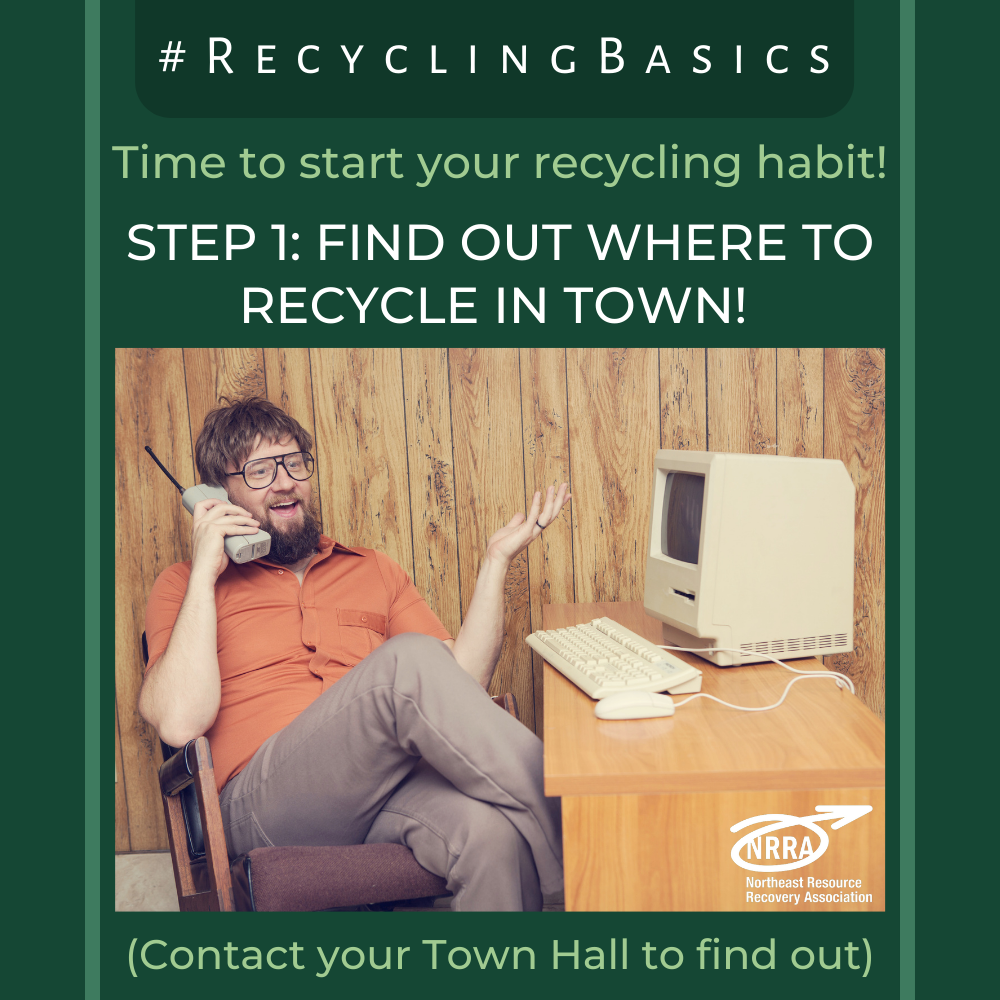
RECYCLING BASICS: Time to Start your Recycling Habit!
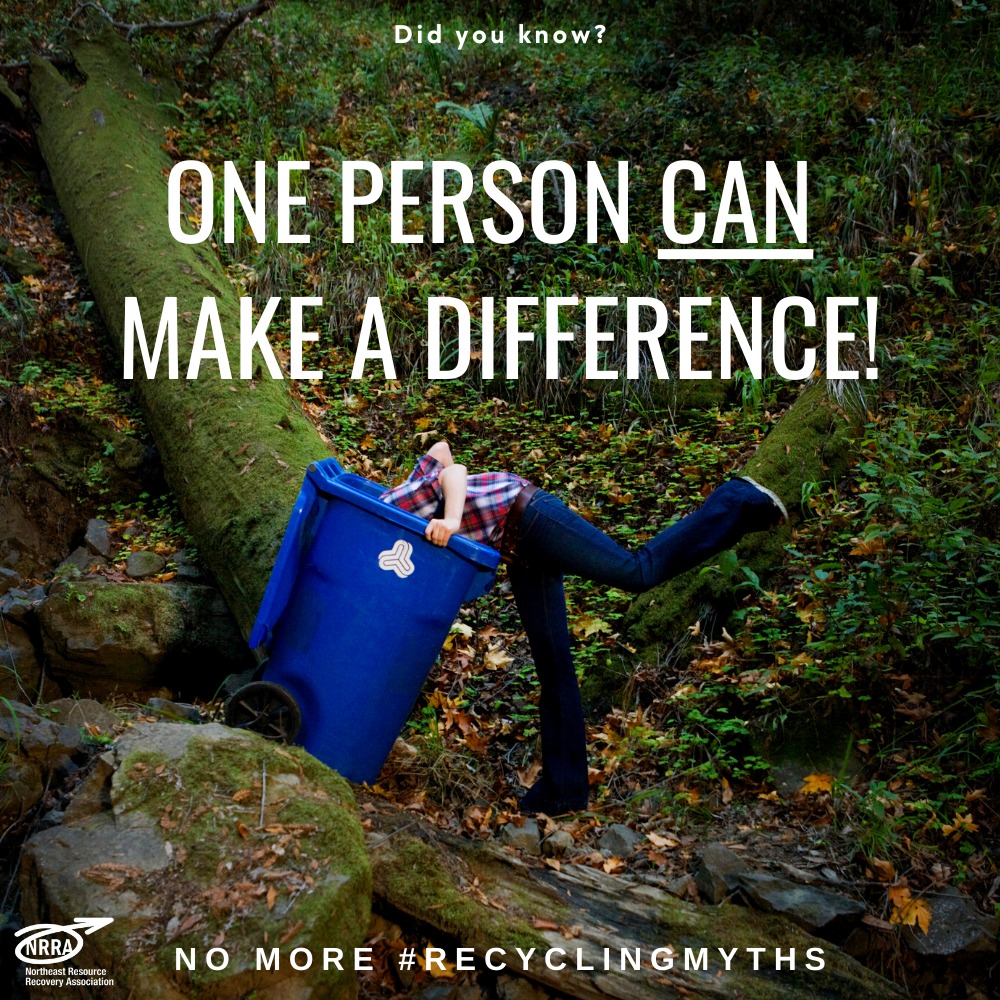
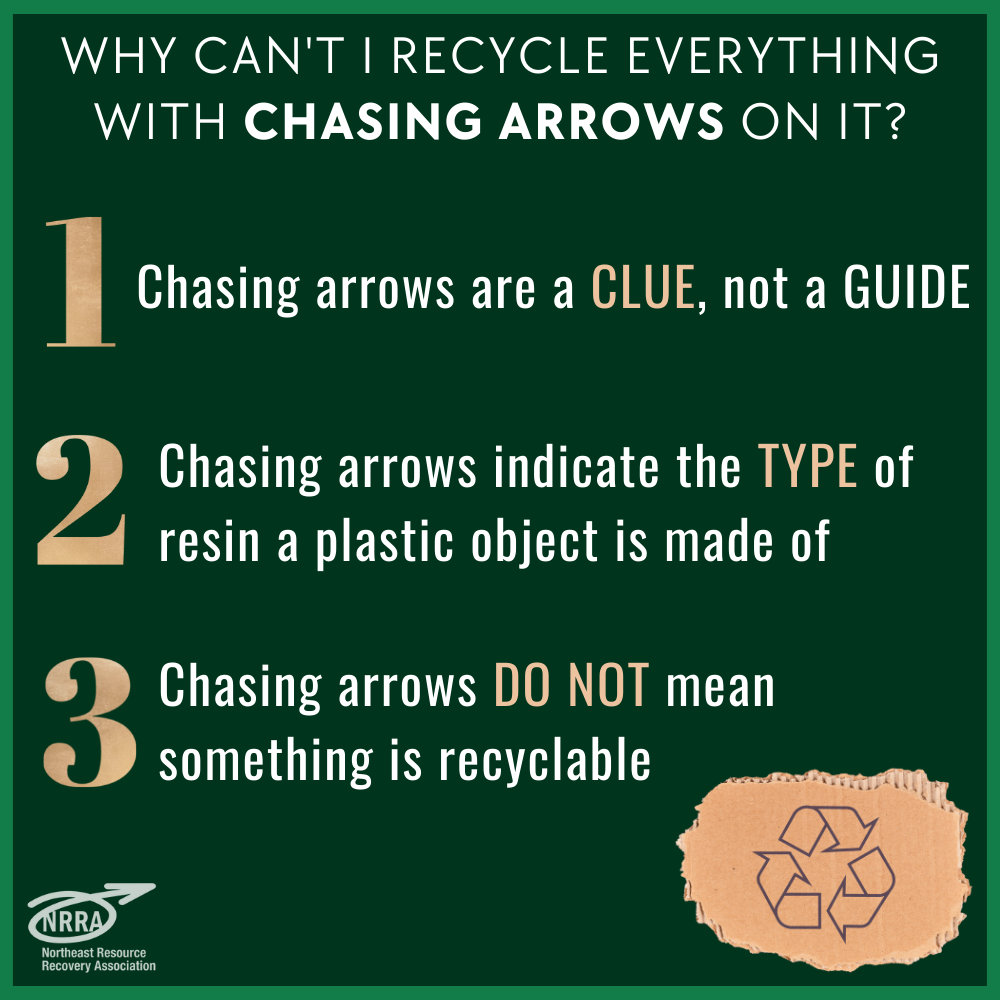
This sign: "![]() " does NOT mean something is Recyclable.
" does NOT mean something is Recyclable.
Today we are coming in hot with our first piece of #recyclingeducation! You've seen this symbol "" known as "chasing arrows" on all sorts of plastic things. You may think it means something is recyclable...or is made from recyclable materials. Unfortunately, it's never that straightforward.
This symbol with a number in the middle tells you what type of resin - or plastic - the item is made out of. This means it can give you a CLUE as to whether or not it's recyclable. Some numbers - like #1 are often (but not always - we're looking at you clamshell food containers) recyclable. Other numbers, like #6 (eg. styrofoam cups) or #7 (eg. cell phone cases) are very difficult to process and therefore rarely accepted.
What to do?
- ASK your transfer station worker or sanitation worker to see if it's recyclable
- CHECK your town or city's website - look under "public works" to find information about recycling rules in your town
- WHEN IN DOUBT, THROW IT OUT! You can turn otherwise good recyclables into trash by tossing a non-recyclable item in. If you're not sure if something is recyclable and you can't get an answer through steps 1 and 2, then toss your item in the trash to avoid possibly contaminating a whole bunch of recyclables.
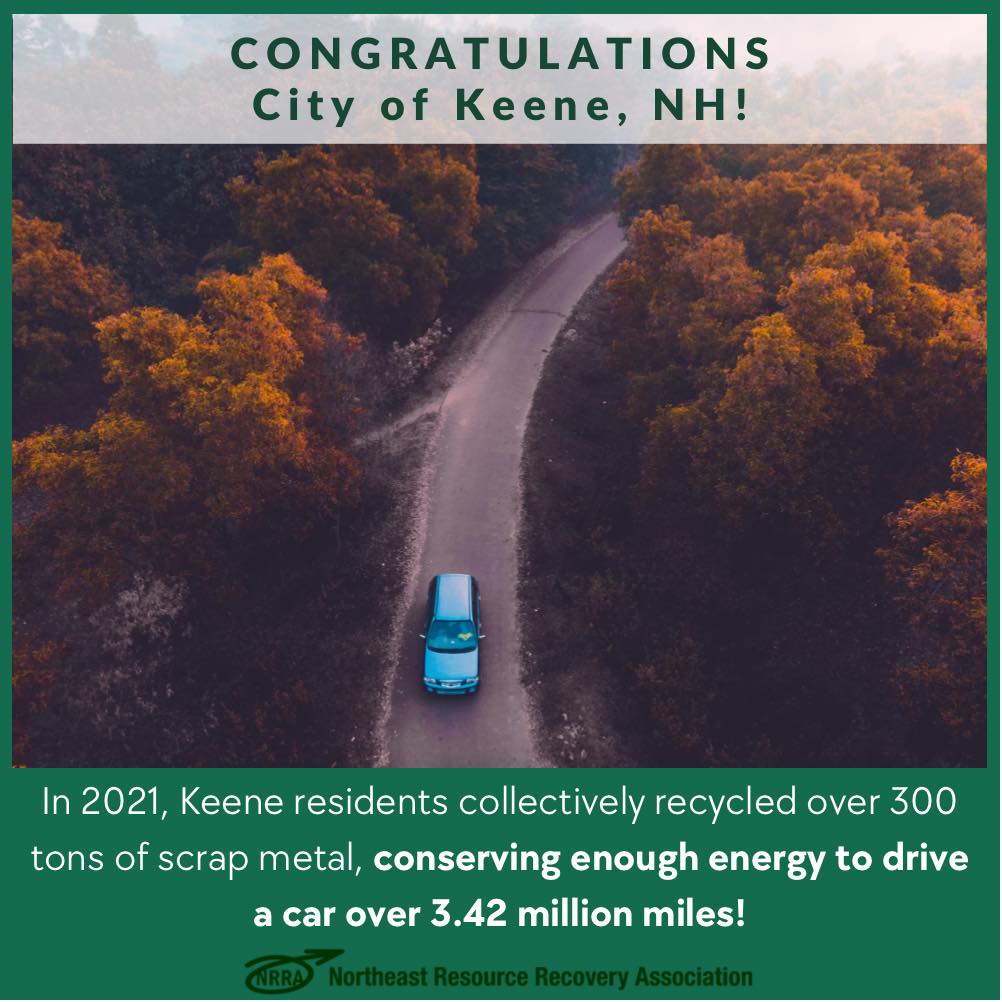
CONGRATULATIONS to the City of Keene, NH and the City of Keene Public Works Department! By taking the time to recycle OVER 300 TONS of scrap metal (instead of trashing it) the town conserved enough energy to drive a car more than 3.42 MILLION MILES!
How? Because it takes more resources and energy to process and manufacture new metals, opposed to using recycled materials that do not need to be mined and processed.
Video
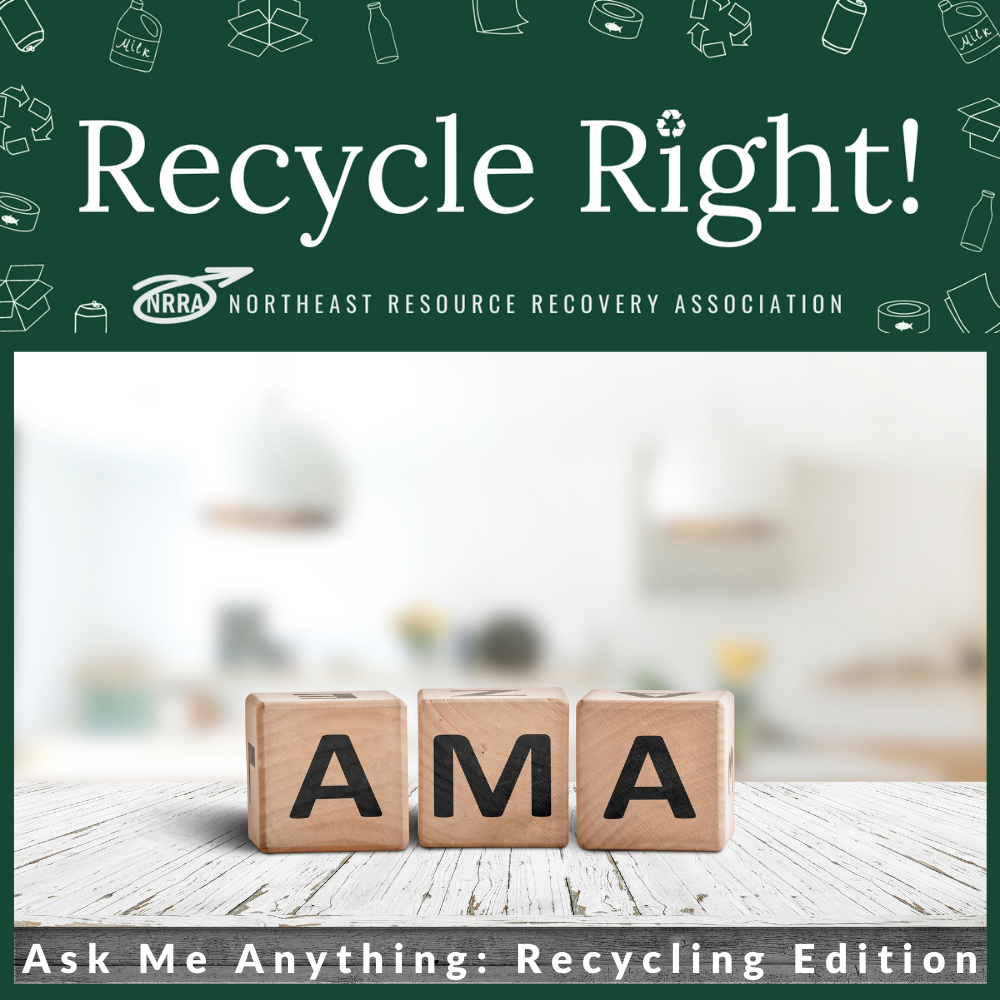
(You can access the Ask Me Anything: Recycling Edition video on our website or YouTube channel. If you are sharing on Facebook, we recommend using the SHARE button below, which links directly to the video on Facebook.)
Our first Ask Me Anything: Recycling Edition event was a HIT! Tune in as our panel of recycling experts answer audience-submitted questions about recycling. From the basics (What is recycling contamination?), to the nitty-gritty (Can mayonnaise jars be recycled? Where do egg cartons go?). From whether or not our recyclables really ARE being recycled, the financial and environmental costs, and much much more!
OUR RECYCLING EXPERTS:
- Reagan Bissonnette is the Executive Director of the Northeast Resource Recovery Association (NRRA). Reagan writes and speaks extensively about recycling and waste reduction, including in regional and national forums. She is a member of the New Hampshire Solid Waste Working Group, which is responsible for assisting the New Hampshire Department of Environmental Services with solid waste planning and policy initiatives.
- Bonnie Bethune is the Senior Member Services Representative of the Northeast Resource Recovery Association. She assists NRRA’s municipal members with a wide variety of technical assistance and cooperative marketing and purchasing needs. This includes marketing tractor-trailer loads of recyclable material to environmentally sound vendors, providing hands-on technical assistance to help solid waste facility operators improve their solid waste management and planning, and coordinating household hazardous waste events for municipalities.
- Marc Morgan is the Solid Waste Manager for the City of Lebanon, NH. Marc has worked in the solid waste/recycling industry for more than 25 years with a focus on the development of recycling and waste reduction programs.
#nrrarecycleright #nrrarecycles
This material is based upon work supported under a grant by the Rural Utilities Service, United States Department of Agriculture. Any opinions, findings, and conclusions or recommendations expressed in this material are solely the responsibility of the authors and do not necessarily represent the official views of the Rural Utilities Service. Rural Community Assistance Partnership, Inc., is an equal opportunity provider and employer.

